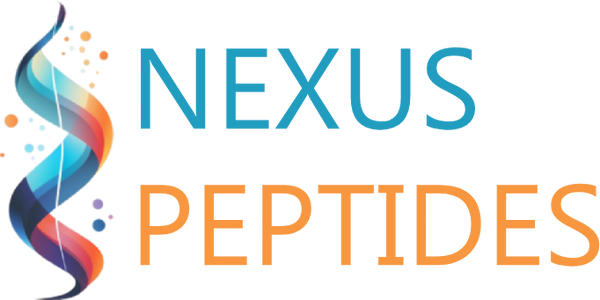Introduction
In recent years, the field of regenerative medicine has witnessed a surge in interest surrounding peptides like BPC-157 and TB-500. These peptides, derived from naturally occurring proteins, have gained attention for their potential to promote healing and tissue repair in the human body. In this blog post, we'll delve into the world of BPC-157 and TB-500, exploring their origins, mechanisms of action, and the promising therapeutic applications they offer.
BPC-157: The Body's Natural Repairman
BPC-157, short for Body Protection Compound-157, is a synthetic peptide derived from a naturally occurring protein found in the human stomach. It has been extensively studied for its ability to facilitate the healing of various tissues, including muscles, tendons, ligaments, and the gastrointestinal tract.
How Does BPC-157 Work?
-
Anti-Inflammatory Properties: BPC-157 exhibits potent anti-inflammatory effects, reducing the production of inflammatory cytokines. This property is crucial in promoting tissue healing as excessive inflammation can hinder the repair process.
-
Angiogenesis Stimulation: The peptide stimulates angiogenesis, the formation of new blood vessels. This increased blood flow to damaged areas can expedite healing and improve nutrient delivery to tissues.
-
Collagen Production: BPC-157 promotes collagen synthesis, a key component of connective tissues. Enhanced collagen production can strengthen and repair injured tendons, ligaments, and muscles.
Potential Therapeutic Applications of BPC-157
-
Muscle and Joint Injuries: BPC-157 has shown promise in accelerating recovery from muscle and joint injuries, making it an attractive option for athletes and active individuals.
-
Gastrointestinal Healing: Research suggests that BPC-157 may help repair and protect the gastrointestinal tract, offering hope for conditions like ulcers, inflammatory bowel disease, and leaky gut syndrome.
-
Pain Management: Due to its anti-inflammatory properties, BPC-157 may provide relief from chronic pain associated with various conditions.
TB-500: The Peptide of Healing
Thymosin Beta-4 (TB-500) is another peptide that has gained attention for its regenerative properties. Unlike BPC-157, TB-500 is derived from a protein called thymosin beta-4, which plays a role in cell migration and differentiation.
How Does TB-500 Work?
-
Cellular Regeneration: TB-500 promotes the repair and regeneration of cells. This is essential for the healing process, as damaged cells need to be replaced to restore tissue function.
-
Tissue Repair: TB-500 has the ability to migrate to damaged tissues, aiding in their repair. It also enhances the formation of new blood vessels, improving oxygen and nutrient delivery.
-
Reduces Inflammation: Like BPC-157, TB-500 has anti-inflammatory effects, helping to create a favorable environment for healing.
Potential Therapeutic Applications of TB-500
-
Wound Healing: TB-500 has been explored as a potential treatment for slow-healing wounds, such as diabetic ulcers.
-
Cardiovascular Health: Its ability to stimulate blood vessel formation may have applications in treating cardiovascular conditions.
-
Muscle and Tendon Injuries: TB-500 may aid in the repair of muscle and tendon injuries, making it of interest to athletes and those with chronic overuse injuries.
Safety Considerations
While both BPC-157 and TB-500 show promise, it's essential to note that they are still being researched, and their long-term safety in humans is not fully understood. Always consult with a healthcare professional before considering any peptide-based therapies.
Conclusion
BPC-157 and TB-500 represent exciting developments in the field of regenerative medicine. Their potential to enhance tissue repair, reduce inflammation, and promote healing offers hope for a wide range of medical conditions. As research continues to unfold, these peptides may become valuable tools in the arsenal of healthcare providers striving to improve the quality of life for their patients. However, it's crucial to approach peptide therapy with caution, seeking guidance from medical experts to ensure safe and effective use. The future of regenerative medicine is bright, and peptides like BPC-157 and TB-500 are shining stars on the horizon.
